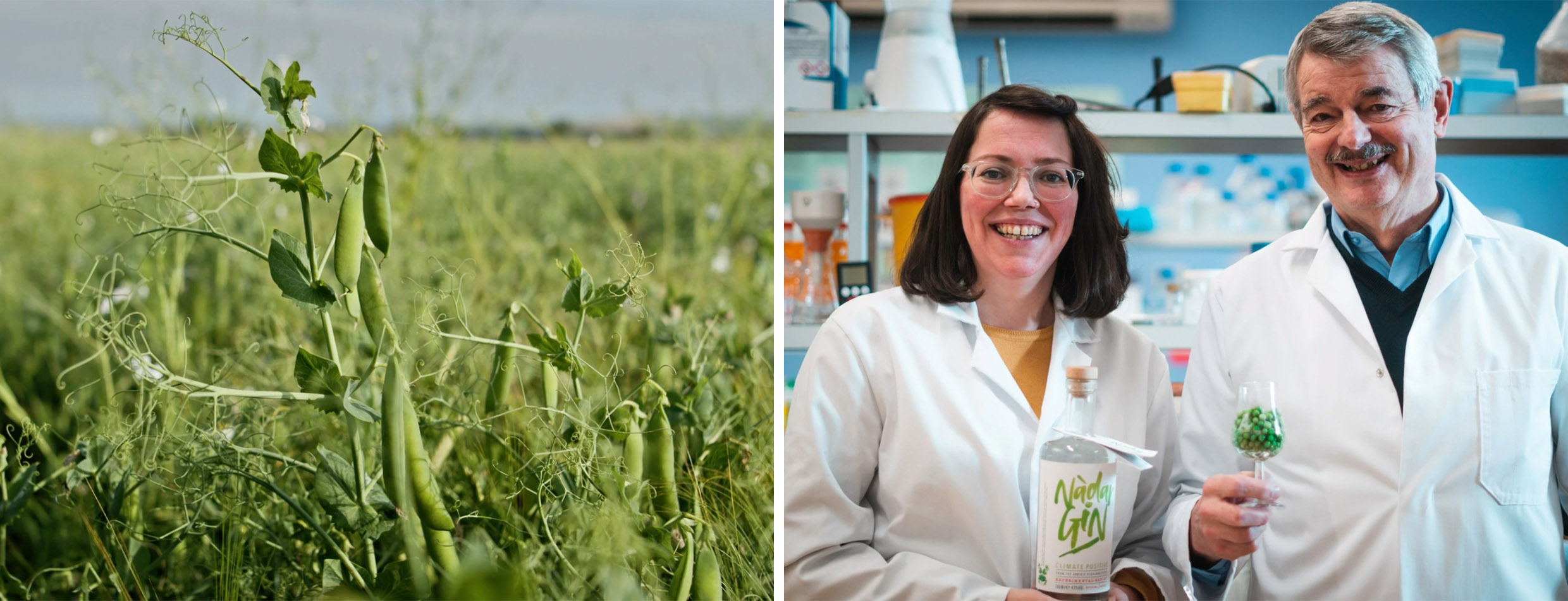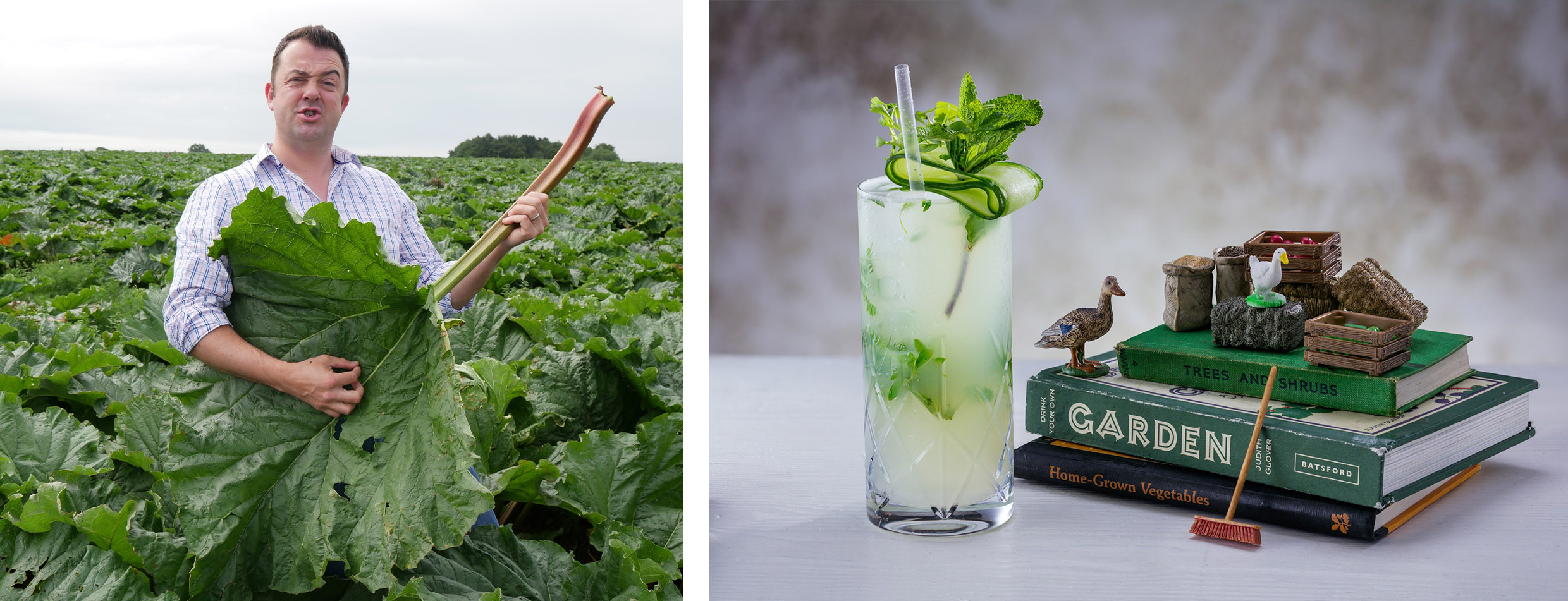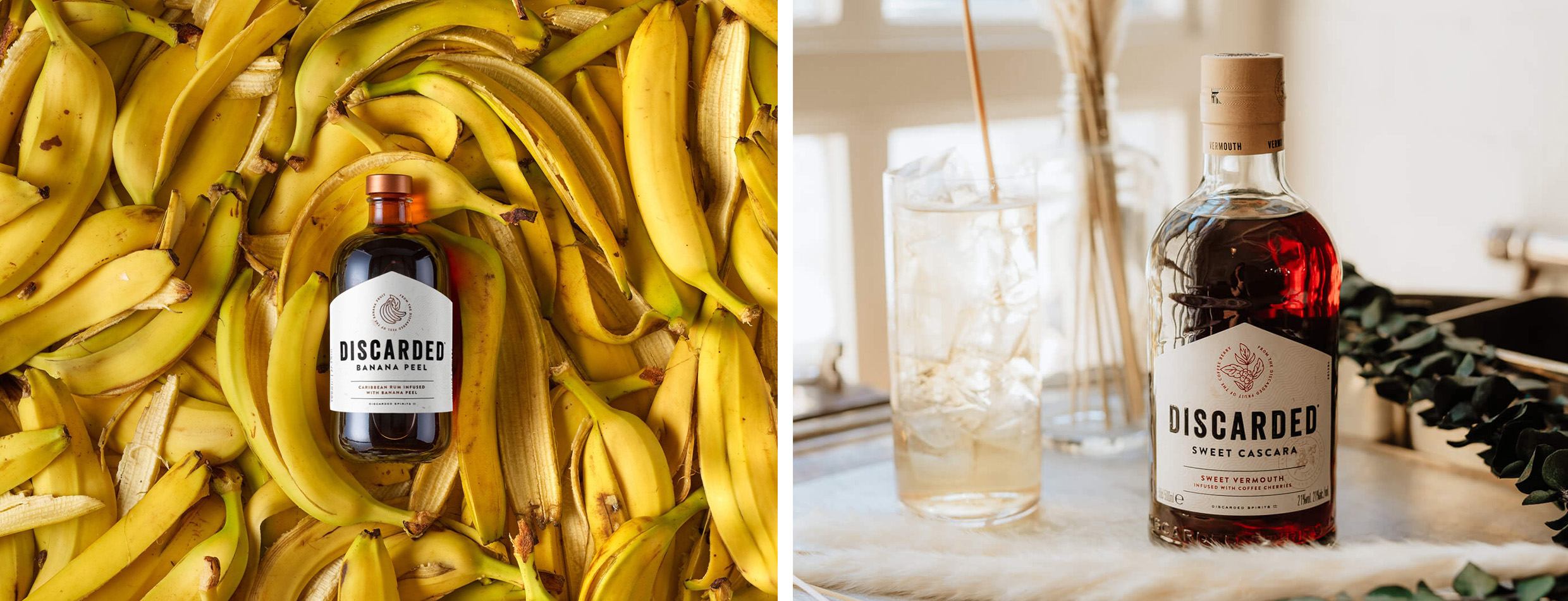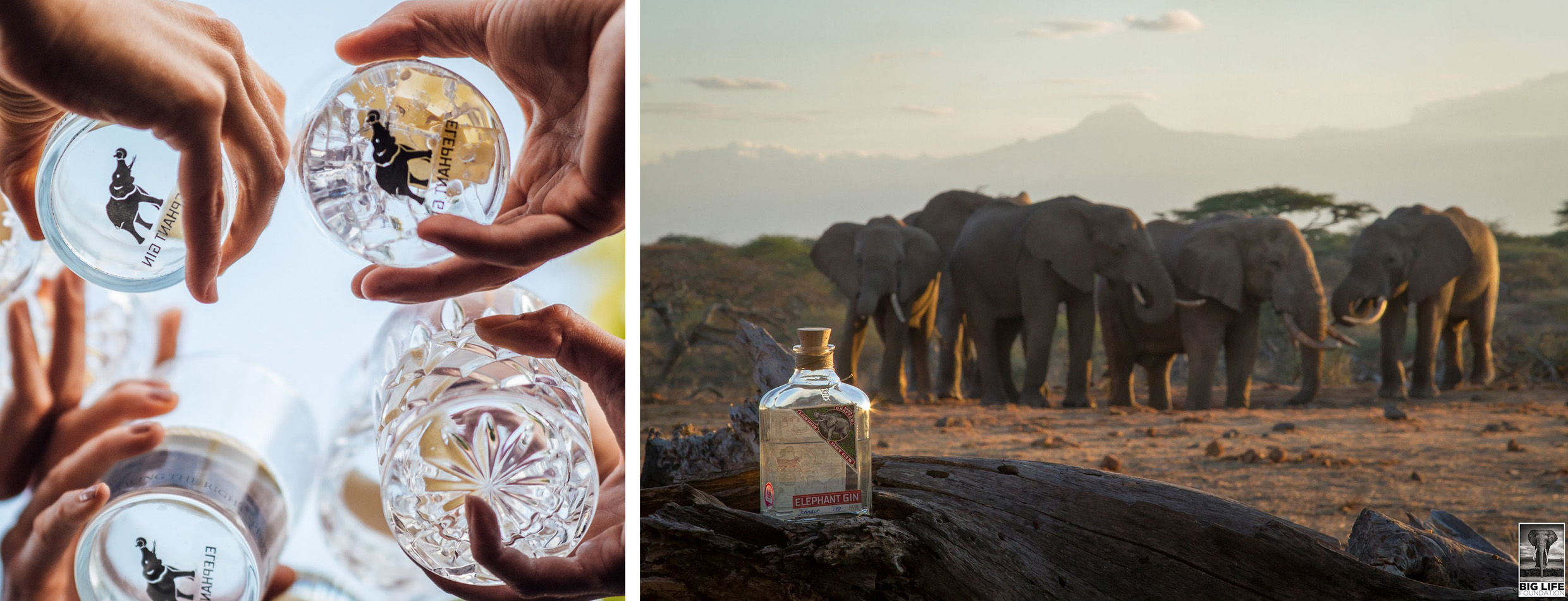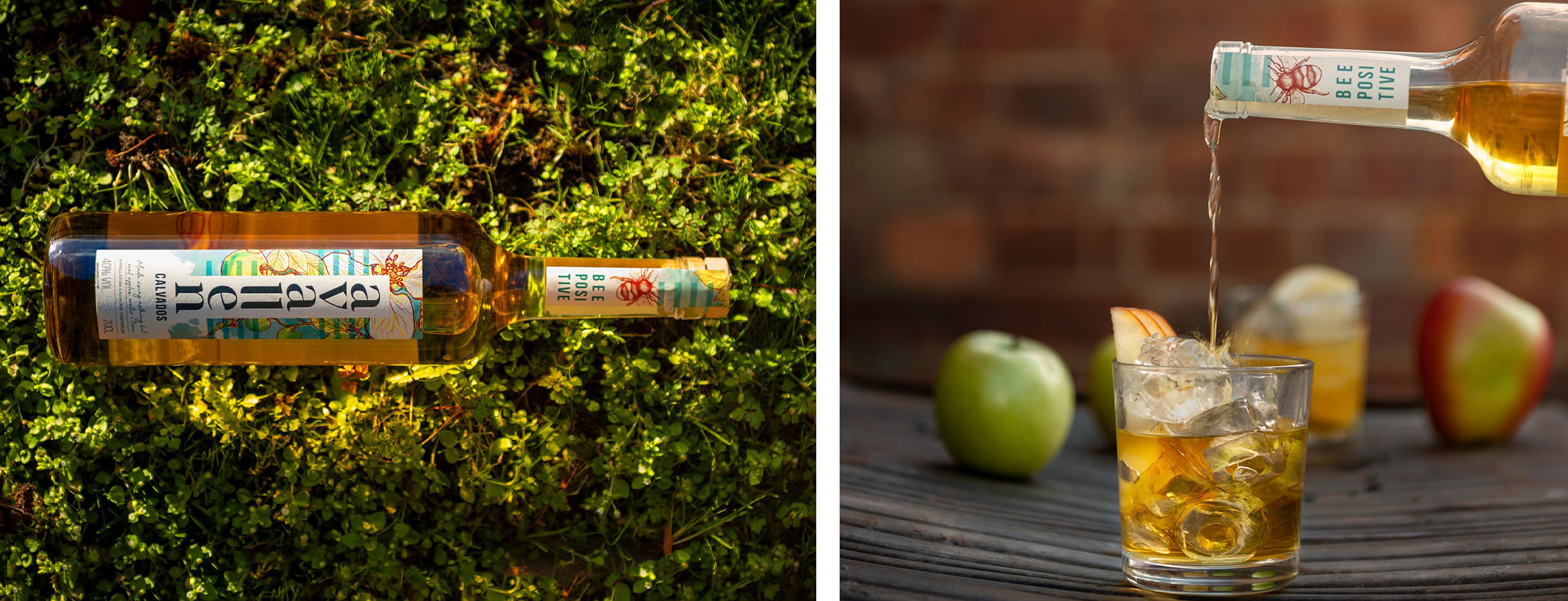EARTH DAY
Posted by Spirits Kiosk on 19 Apr 2022
With Earth Day growing closer, we encourage everyone to take a moment on April 22nd to ask themselves what we are actively doing to invest in our planet? More importantly; How are we taking the reins to stimulate change?

Whilst the responsibility can’t fall on one person's shoulders, nor happen on one day, we can take this opportunity to recharge our opinions towards conscious consumption and reassess who we endorse through what we choose to buy.
It’s one of our core beliefs here at Spirits Kiosk and so much of what we do is in an attempt to help drinkers make informed decisions – whatever they are into. If you find yourself questioning how your money can positively enforce change, here are some brands pioneering the conversation around sustainable production and process.
ARBIKIE HIGHLAND ESTATE DISTILLERY
The Arbikie Distillery have done a lot to advance the conversation around sustainability and raw materials. Their respect for the environment re-enforces a collective need for brands to be transparent and traceable.
The genuine ‘field to bottle’ operation to produce their Vodka and base for the Gin shows the potential in harnessing the local surroundings. By using their own crops, water and botanicals, the distillery can ensure that primary waste products can be recycled as cattle feed or natural fertilisers.
Their mission to lay down new standards for the industry lead them to also create Nàdar Vodka and Gin, which was the world’s first climate positive Vodka! It’s made using peas, a clever decision as through the way they are grown and what they leave behind, they absorb more carbon emissions than they produce (-1.54kg CO2e per 700ml bottle of Gin).
The bonus is that they both taste great too – there’s a real citrussy zing to the Gin, while the Vodka is crisp and clean.
WARNER’S
Another great team to champion and a distillery that doesn’t treat sustainability as just another box to tick is Warner’s.
They commit considerable resources to promote more sustainable production methods and encourage biodiversity on their farm. Moreover, they bring this to the way they engage fans and trade alike, helping progress the conversation and encourage others to join the mission. They put their money where their mouth is, by dedicating 1% of total business revenue to environmental projects, and historically, have supported charitable causes that vary between each type of gin they make. Even by transitioning away from the use of wax seals to their new plastic free packaging, it shows that they are making the right moves for a much-anticipated official B-Corp stamp of approval soon.
It’s not just gin though. Their Trash & Treasure Spiced Botanical Rum takes the words of ‘One person’s trash is another’s treasure’ and physically puts it into action. They use the unwanted and overlooked ingredients like dandelion root, over ripe bananas and discarded citrus peels to turn what could have been waste into a fresh and caramelised spiced rum.
DISCARDED
Continuing to fuel the art of upcycling, Discarded Spirits Co. adopts the ‘once wasted, now treasured’ philosophy to unlock a ‘new dawn for the spirits industry’. The brand’s whole concept is to upcycle product that otherwise would have been discarded.
With billions of tonnes of Cascara completely wasted in coffee production each year, Discarded Spirits repurposes the waste product to form a full bodied, sweet Cascara Vermouth. Whereas Discarded’s Banana Peel Rum, lives up to its name in every way by repurposing what would otherwise be an unused Rum, adding peels that would be discarded and delivering a mightily tasty tipple in doing so.
ELEPHANT GIN
One brand that is hugely inspiring with their sustainability and conservation efforts is Elephant Gin. They’ve been doing it for a while too – long before others - and how they audit funds, their transparency and their commitment to actioning change mean that in our opinion – they do it best.
With every full-sized bottle sold, Elephant Gin contributes 15% of profits to conservation charities such as Big Life Foundation, matching the donations with their miniatures for the Sheldrick Wildlife Trust. To date, they have raised hundreds of thousands of Euros for partner foundations.
The range of gins they make are delicious and there is so many added details that each time you swing by, you discover more about them. Their education centre (The Wildlife Spirit) for example, produces paper out of elephant dung and bricks out of rubbish paper. You can even see the local craftsmanship of Kenyan Maasai beaders, decorated on the Elephant Sloe Gin bottles.
Great cause, great team and great gins – what more could you ask for?

CARBON SEQUESTRATION AND SEAGRASS RESTORATION
Cementing its coastal provenance and inspiring a reconnection with the Isle of Wight’s marine environment, Mermaid Gin stands out as a brand adopting a progressive commitment to conservation.
Every bottle component has been carefully considered, from corn and potato starch neck seals to water-based paint for its distinctive lettering, Mermaid imbues the island's sustainable presence.
What resonates with us is the Isle of Wight Distillery’s firm support of seagrass restoration and rejuvenation. Working with Hampshire and Isle of Wight Wildlife Trust, they monitor the seagrass around the island that sequesters carbon at an outstanding rate. CLEAR Centre’s definition of Carbon Sequestration stands as the process of capturing, securing and storing carbon dioxide so that it doesn’t cause the atmosphere to warm. The result? The seagrass can shelter a wealth of wildlife, creating rich ecosystems in plentiful variety beneath the water’s surface.
Mermaid’s desire to maintain the ocean’s health and wellbeing is equally shared with Salcombe Distilling Co.’s mission to vigorously reduce their carbon footprint. Partnering with The Marine Conservation Society, 1% of Salcombe Gin’s ‘Start Point’, ‘Rosé Saint Marie’ and ‘New London Light’ bottle sales are donated to support the seagrass regeneration project. Considering that seagrass meadows account for 10% of the ocean’s carbon sequestration, having brands like Mermaid and Salcombe pushes the battle against climate change to a more accessible level.
A LIGHTER STEP TOWARDS NET ZERO
In recent years many distilleries have encouraged a move towards more sustainable practices through rebranding packaging across the board.
Take Elephant Gin’s 15% lighter bottle for example. You might say that 15% can only do so much, but this small step towards net zero carbon emissions, has reduced the brand’s carbon footprint by 60 tons a year. Or, if you want a more weighted argument, Beefeater’s move towards a 100% recyclable glass bottle, swapping out the plastic cap for embossed aluminium and favouring paper over PVC labels, have allowed the brand to save 410 tons of plastic annually. Gordon’s and Plymouth have also shed a few pounds in a bid to lighten the footprint they make.
One brand that stands out as a plastic free poster child for sustainable packaging is Avallen Calvados. Their new label, made from recycled paper and waste apple pulp, lists the carbon footprint per bottle (separated into that of the liquid and the packaging), the amount of water used per bottle and the recycled content of the glass bottle itself.

Many others are stepping up, but it’s important that you demand it too. Every pound you spend is an endorsement of what you believe in. You have the power to support those being proactive, and demand that others follow suit.
So, this Earth Day when the fate of the world feels heavy, the burden of climate change too much and the scale of challenge too daunting - just remember this:
All steps are good steps, no matter how small. Champion change where you can and for as much as it’s down to us all to do the work, if done collectively it is possible. In our case, one carbon and plastic free delivery at a time, one distillery being pressured to change after another all the while celebrating the early adopters for their progress.
We’re all in. What’s in your glass can be too.



